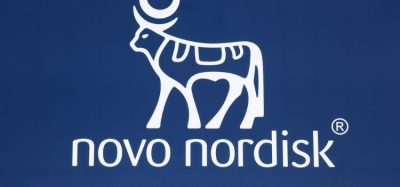Tislelizumab reduces risk of death by 30 percent in oesophageal cancer trial
Posted: 7 June 2021 | Hannah Balfour (European Pharmaceutical Review) | No comments yet
In a Phase III trial, Novartis’ investigational checkpoint inhibitor tislelizumab improved overall survival in patients with oesophageal squamous cell carcinoma.


Phase III trial results show Novartis’ investigational anti-PD-1 immune checkpoint inhibitor, tislelizumab, improved overall survival (OS) in patients with oesophageal cancer versus chemotherapy. The Phase III RATIONALE 302 study evaluated tislelizumab in patients with unresectable recurrent locally advanced or metastatic oesophageal squamous cell carcinoma (ESCC) who had received prior systemic therapy.
Results from RATIONALE 302 in ESCC showed tislelizumab extended median OS by 2.3 months compared to chemotherapy (median 8.6 months versus 6.3 months, respectively) and reduced risk of death by 30 percent. In PD-L1 positive patients, tislelizumab extended median OS by 3.5 months with a 46 percent reduction in the risk of death (Hazard Ration [HR] = 0.54).
“These data show that tislelizumab has the potential to help patients with oesophageal squamous cell carcinoma – one of the deadliest types of cancers – live longer,” stated Dr Jeff Legos, Senior Vice President and Head of Oncology Drug Development at Novartis. “We are excited about these results from the newest asset in our portfolio of transformational medicines and look forward to sharing these data with regulatory authorities, as we continue to explore the full potential of this uniquely designed anti-PD-1 antibody.”
Treatment with tislelizumab resulted in a median progression-free survival (PFS) of 1.6 months compared to 2.1 months (HR = 0.83). Tislelizumab demonstrated a higher and more durable anti-tumour activity than chemotherapy (objective response rate [ORR] = 20.3 percent versus 9.8 percent; median duration of response [DoR] = 7.1 months versus 4.0 months).
The discontinuation rate due to treatment-related adverse events (TRAEs) was lower in patients who received tislelizumab (6.7 percent) compared to chemotherapy (13.8 percent). The most common all-grade TRAEs (≥10 percent) with tislelizumab were increased aspartate aminotransferase (11.4 percent), anaemia (11 percent) and hypothyroidism (10.2 percent). No new safety signals were identified.
“Most patients with this type of oesophageal cancer are diagnosed with advanced disease, resulting in a poor prognosis for this difficult-to-treat cancer,” commented Dr Jaffer Ajani, professor of Gastrointestinal Medical Oncology at The University of Texas MD Anderson Cancer Center, US. “The impact tislelizumab had on survival compared to chemotherapy in this study is highly meaningful and encouraging news for patients, caregivers and treating oncologists.”
Oesophageal squamous cell carcinoma is the most common type of oesophageal cancer globally and the sixth leading cause of cancer-related death worldwide. Each year, oesophageal cancer claims nearly as many lives as colon cancer across the globe. More than two-thirds of patients with ESCC have advanced or metastatic disease at the time of diagnosis. The average five-year survival rate is only five percent.
About tislelizumab
Tislelizumab was specifically engineered to minimize binding to macrophage Fcγ receptors, a potential mechanism of anti–PD-1 resistance.
In an agreement finalised earlier this year, BeiGene granted Novartis rights to develop, manufacture and commercialise tislelizumab in North America, Europe and Japan through a collaboration and license agreement.
Related topics
Anti-Cancer Therapeutics, Antibiotics, Biologics, Clinical Trials, Drug Development, Drug Safety, Drug Targets, Immunotherapy, Research & Development (R&D), Therapeutics









